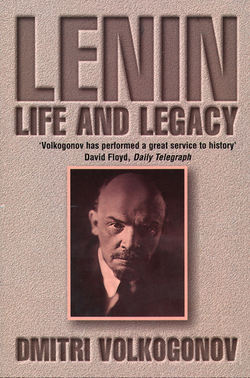Читать книгу Lenin: A biography - Harold Shukman - Страница 24
3 The Scar of October
ОглавлениеOn the evening of 1 August 1914, Germany declared war on Russia. When mobilization was declared, the whole nation rallied to the tsar. Plekhanov expressed a strong desire to defend the fatherland, and even Trotsky, who was not a defencist, wrote in the Paris newspaper Nashe slovo (Our Word) (formerly Golos, The Voice) that to preach the defeat of tsarist Russia made no sense, since that would mean advocating the victory of reactionary Germany. Only Lenin sensed intuitively the improbable, fantastic chance of achieving his hopes.
As patriotism sank in the mud and blood of the trenches, and hopes for victory faded, Lenin grew confident that neither Tsar Nicholas nor Kaiser Wilhelm would emerge from the war without a revolution. The intelligentsia, both in Russia and Germany, cursed the war and called for peace. But while each side hoped that its own army would not be defeated, only Lenin saw the war as an indispensable ally.
Unlike the peasant in his soldier’s cloak, enduring gas attacks, or the prisoner of war in Saxony, or the impoverished family in the city, Lenin observed the war from the Russian émigré’s grand circle, at first in Poronino and Vienna, and then in the neutral comfort of Berne and Zurich. How did the leader of the future Russian revolution fill the time during its prologue? Did he prepare himself for the rôle he was to play? Was he confident of the outcome? Until the February revolution, he led the quiet life of a man used to living far from home and not very much concerned with domestic cares. Life for Lenin in those years meant writing hundreds of letters to a relatively limited circle of people, among them his close Bolshevik associates Alexander Shlyapnikov, Alexandra Kollontai, Karl Radek, Grigory Pyatakov, S. Ravich, Grigory Zinoviev and Lev Kamenev, and his friend and benefactor Maxim Gorky. A large part of his correspondence was with Inessa Armand, he being in Zurich, she in Clarens on Lake Geneva near Montreux. It was an emotionally charged exchange between two very close people who, though they discussed revolutionary matters, tried to give each other something more than routine reports, more than confirmation of the posting of books or organizing links between Russia and Scandinavia.
Lenin spent a lot of time studying the works of Hegel, Aristotle and Lassalle, as well as Napoleon and Clausewitz, he read Victor Hugo’s poetry and occasionally took Krupskaya to the local theatre. They were able to relax at a moderately priced spa in the mountain resort of Flums in St Gallen. When he was not writing letters, resting, holding meetings, travelling or rowing with his opponents, Lenin wrote articles, pamphlets and more substantial works such as ‘Imperialism as the Highest Stage of Capitalism’. Since the post from Russia was slow, he got his news from The Times, Neue Zürcher Zeitung and Le Temps, and he gained the growing impression that an earthquake was approaching in Russia. The nation’s weariness of the hardships imposed by the war and constant defeats was reaching a critical point, although what lay beyond even Lenin did not suspect.
In early January 1917 he gave a lecture at the People’s House in Zurich on the twelfth anniversary of the 1905 revolution. The audience, mostly students, was sparse, and the lecture was boring, prolonged and largely descriptive. Lenin emphasized the fact that in 1905 the scale of civil unrest had been insufficient to topple the autocracy: ‘The peasants burned up to 2000 estates and divided the livestock among themselves … Unfortunately, this was only one-fifteenth of what they ought to have destroyed … They did not act with sufficient aggression, and that is one of the main causes for the failure of the revolution.’ He rushed on speedily through his notes, expressing the view that 1905 would remain ‘the prologue to the approaching European revolution’. He did not mention Russia as the scene of imminent rebellion, and also declared that the revolution would not come soon, concluding: ‘We old folks may not live to see the decisive battles of the coming revolution.’1
